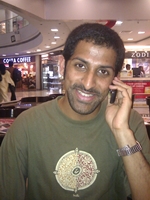Here’s a personal thought I’d like to share which popped in me after Wednesday’s AGA session ‘A path to social justice: Reaching Europe’s invisible children’. This talk provided us with the example of two NGO’s, in Moldova and Bulgaria, which work on tackling the exclusion of ethnic minorities, and who have a partner for this cause in The Global Fund for Children.
To achieve any form of societal change, social activism plays a crucial part, and in its very own way: sounding the alarm bell to highlight certain issues, pointing out why the issue needs to be tackled, putting in very factual and concrete terms the
reasons why this is happening, and gathering the right partners in order to achieve your objective. As one of the NGO representatives at the talk pointed out, social activism can initially take the form of a so-called barricade approach, which means you decide to take up a fight. The following step, however, is of utmost importance, and needs to be well thought through. How to go beyond alarmbell ringing and awareness raising, and move towards engaging in dialogue?
I believe foundations here can be extremely good listeners, as they not only have
the quality to bring the various concerned actors around the table, but they are
able to translate very different, divergent, convergent voices into a single shared
message. Might sound overly positive, but sometimes the most effective measures with
the greatest impact are pretty simple…
Prabhu Rajagopal is a project collaborator at King Baudouin Foundation






Comments (1)
While expecting to learn more about what makes these children invisible, and how to make them more visible, this session ended up providing important insights from organizations working with Roma youth and children.Main factors preventing participation were identified as poverty, unemployment and discrimination. Donors were encouraged to support more creative efforts and approaches, support institutional development and take time to better understand the context of communities. One of the speakers encouraged donors to visit NGOs before making grants, as projects on paper are not exactly as they appear in person. I could not agree more. At the Sabanci Foundation, we have met every one of the 54 projects we have funded to date before we funded them. While it does take time and resources, it is also a great opportunity to learn and expand horizons as well as get a better sense of what organizations aim to do- especially given that many newer organizations do not have the strongest proposal writing skills.